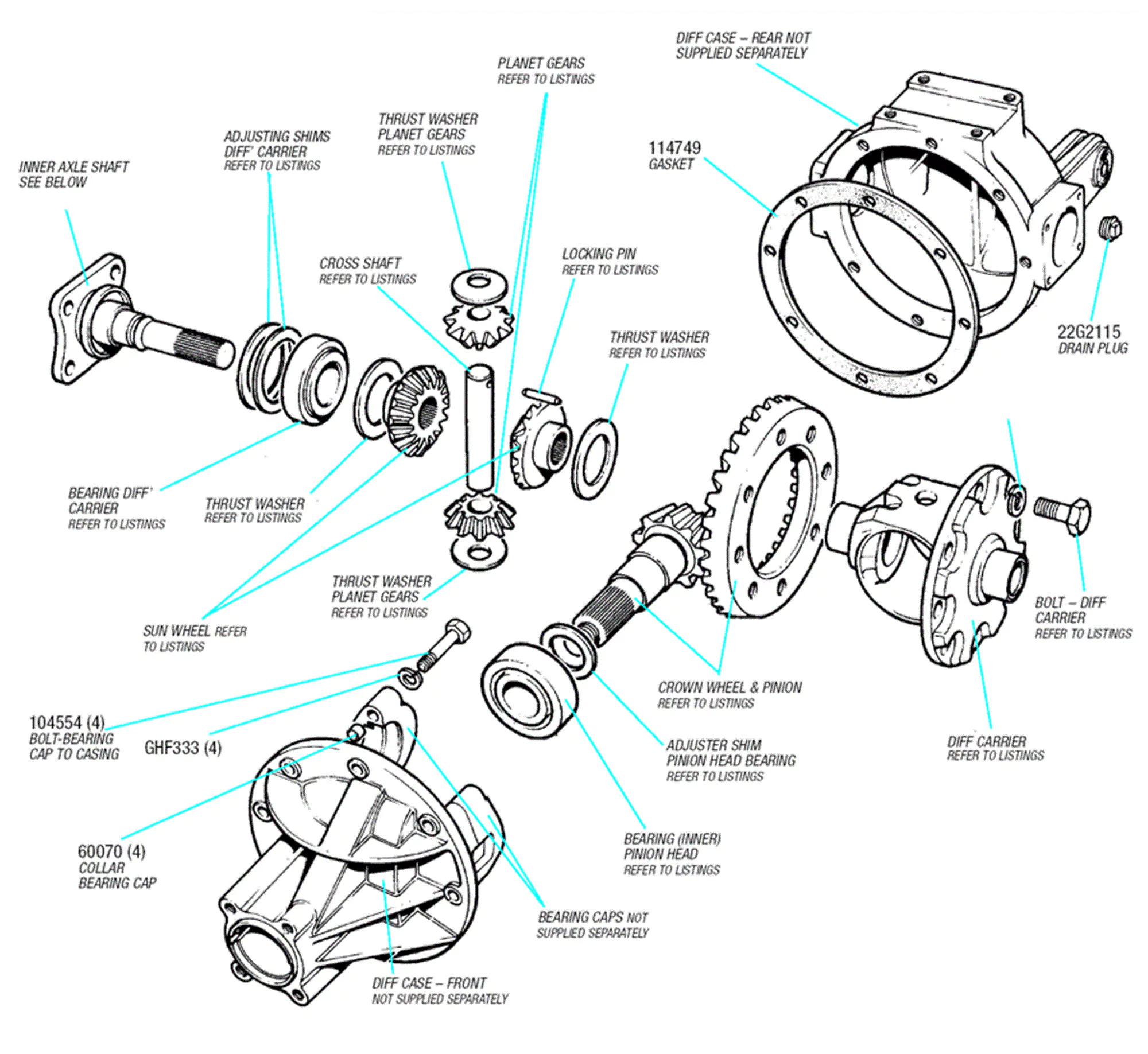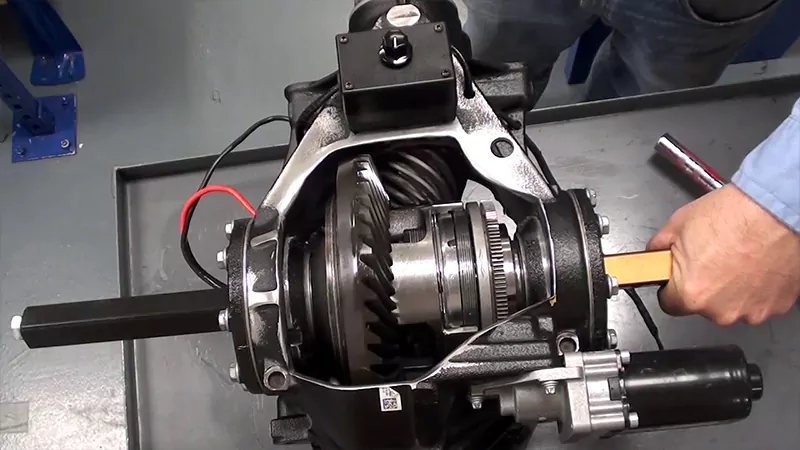What is a Differential?
A differential is a crucial component in a car’s drivetrain, designed to distribute power from the engine to the wheels. It’s located between the drive wheels and allows them to rotate at different speeds. This is essential for smooth and efficient vehicle operation, especially when turning.
Below is a detailed diagram of a differential:
Image source: rimmerbros.com
How Does a Differential Work?
The differential works by splitting the engine’s torque into two outputs, allowing each output to spin at a different speed. Here’s a simple breakdown of its function:
- Torque Distribution
The engine sends power to the differential through the driveshaft. The differential then splits this power between the two drive wheels.
- Speed Variation
When a car turns, the wheels on the outside of the turn must travel a greater distance than the wheels on the inside. The differential allows the outside wheels to rotate faster than the inside wheels, accommodating this difference in distance.
- Smooth Turning
By allowing the wheels to rotate at different speeds, the differential ensures smooth and controlled turning. Without it, turning would cause tire scrubbing, wear, and loss of traction.
Types of Differentials
There are several types of differentials, each designed for specific driving conditions and performance needs:
- Open Differential
The most common type, found in many standard vehicles. It provides even torque distribution but can struggle in low-traction conditions, as it sends power to the wheel with the least resistance.
- Limited-Slip Differential (LSD)
This type can limit the amount of slip between the wheels, providing better traction in low-traction conditions. It’s commonly used in performance and off-road vehicles.
- Locking Differential
This type can lock the wheels together, ensuring both wheels receive equal torque. It’s ideal for extreme off-road conditions but can be less suitable for regular road use.
Conclusion
In summary, the differential is an essential part of a car’s drivetrain, enabling the wheels to rotate at different speeds for smooth and efficient turning. Whether it’s an open differential for standard driving or a limited-slip differential for better traction, understanding this component helps appreciate its role in vehicle performance and safety.




